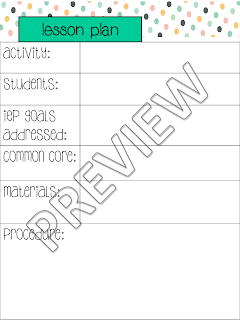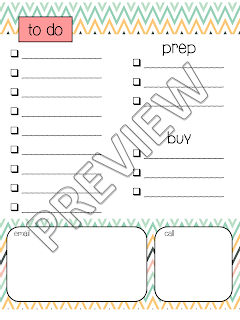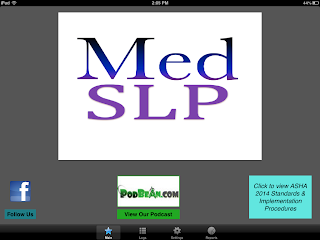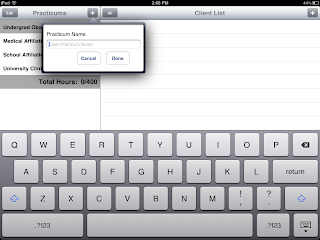One of the things I had been dreading ever since I picked my major in undergrad was this big test known as the Praxis. Everyone had always told me not to worry about it. "Do well in your classes, and you will be fine" is what they always told me. But this is a big test, and you have to pass it. If that doesn't freak you out, I'm not sure what will.
I took the test this past Saturday and wanted to share my experience on everything!
Basics about the Test:
-120 minutes
-120 questions
-All questions are multiple choice.
-You can mark your answers and go back and check them.
-On the computer version, you receive your score right away.
-A score of 600 is passing.
How I Prepped:
Like most, I purchased the Advanced Review of Speech-Language Pathology. This is a great overview of most of the areas in our field. Some of the girls in my program set up Praxis review sessions over the course of the summer and fall semesters. I attended some of those sessions, which were extremely helpful. One girl would summarize a chapter, make a PowerPoint, and led a discussion about the practice questions at the end of the each chapter. This was extremely helpful, and I would highly recommend this to every single one of you who are about to take the test (or will in the next couple years).
I went through a chapter per day (roughly) towards the end. I couldn't bring myself to make flash cards or write out notes for absolutely everything, so I underlined key words and phrases in the book. For the theories, I wrote color-coded notes in a notebook to review the important elements of each.
I purchased a practice test from ETS. This is by far one of the best decisions I made. Not only did it get me in the mindset of test taking, it prepared me for the types of questions on the test and how to manage my time appropriately. Either take the ones on the flashdrive with the book, or purchase the ETS one. I actually took the practice test before I had studied much. I passed it, so that gave me a sense of peace about the test. I knew I wanted some more wiggle room, but it gave me a starting point for studying and some reassurance.
I received a bunch of notes of encouragement from some of my closest friends! These really helped encourage me throughout my studying!
The Night Before:
I thought I would be freaking out the night before the test. Instead, I was at peace. I knew a lot of prayers had been said on my behalf, and boy could I feel them! I finished the chapter I was studying earlier that day, paged through the last couple of chapters, and decided that if I didn't know it then, I wasn't going to know it. I put the book down, watched some TV, and went to bed.
I had also received a beautiful bouquet of flowers from my dad as a way of saying, "Good luck." I called to thank him, and he reassured me that I would do fine and that it was a minimal competency exam (meaning 600 is as good as 800).
Day of the Test:
I woke up after about 7 hours of sleep. Considering this is what I generally had been getting and was planning on way less, I was extremely happy. I ate a small breakfast and attempted to study. I was starting to freak out. My test was at 12:30pm, so I had to wait all morning. Those hours were BRUTAL. If you go to take the test, I highly recommend taking one in the morning. I didn't have a choice of times when I went to sign up...
Anyway, the testing center was about 20 minutes from my apartment, so I decided to leave an hour or so early and stop and get some lunch somewhere. Luckily, one of my friends had taken a test at that center back in August, so she told me what was around. I knew my stomach didn't want much, since it was full of butterflies. I also knew I needed something, or I wouldn't make it through the test. I settled on an Uptown Salad from Potbelly because it has chicken and fruit on it. I figured some protein and natural sugar would be a good tide-me-over until I could eat later.
I arrived at the test center about 35 minutes early (you're supposed to be there 30 minutes early). One of my friends from my program walked out of the testing room and was smiling. She had passed!! It was so good to see a familiar face that morning and to have the assurance that our preparation was enough for us to pass! It was a quick boost of confidence.
I went in to the testing room, took the test, and came out barely able to speak. I had passed!! I was fighting back tears as I walked out. The woman asked if I wanted my score written down, and I said, "No. I know it. All that really matters is that I passed." She congratulated me and sent me on my way.
As soon as I got in the car, the tears started coming down. I had just passed one of the most important tests of my life. Everything I had been working for the last 2, 6, or 19 years had been worth it. Once I got myself together, I called my family and friends to let them know the good news! I spent the rest of the day celebrating with friends!
On Sunday, I finally felt tired. My whole month of holidays, studying, etc. had come to an end. All of the stress was gone.
In case you were wondering, my score was about 70 points higher on the real test than the practice. Again, I hadn't studied for the practice. That shows you how much studying can help!!
Helpful Hints:
-The usual: Arrive early. Dress comfortably. This doesn't necessarily mean yoga pants, but that's what I did! Whatever you're comfortable in--everyone is different! Eat something before the test. Go to the bathroom before the test. The clock keeps counting down when you get up and leave the room.
-Study the book and your notes from both undergrad and grad school.
-Take a practice test. Some of the questions were the exact same or very similar.
-BREATHE.
-Answer everything, but mark the ones you're not sure about. You can go back and review them.
-Trust your instincts. If you're anything like me, your gut is usually right.
Areas to Study:
-Normal speech and language development
-Articulation and phonological disorders
-Different types of aphasia
-Theories of stuttering and stuttering treatment
-Types of standardized testing
-Different legislation and what each one mandates
-Motor speech disorders
-Hearing screenings/testing
-Bilingualism and how being multicultural influences decisions regarding speech and language
Well that was my experience. I have to say I'm glad it's over, but also that my two universities prepared me fairly well for the test.
Good luck to all of you taking it soon (or in the future)!!! As my friends kept telling me, you're going to rock it.












































